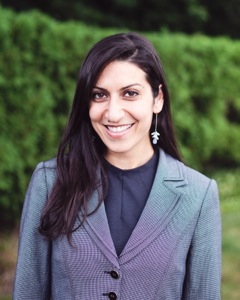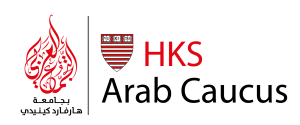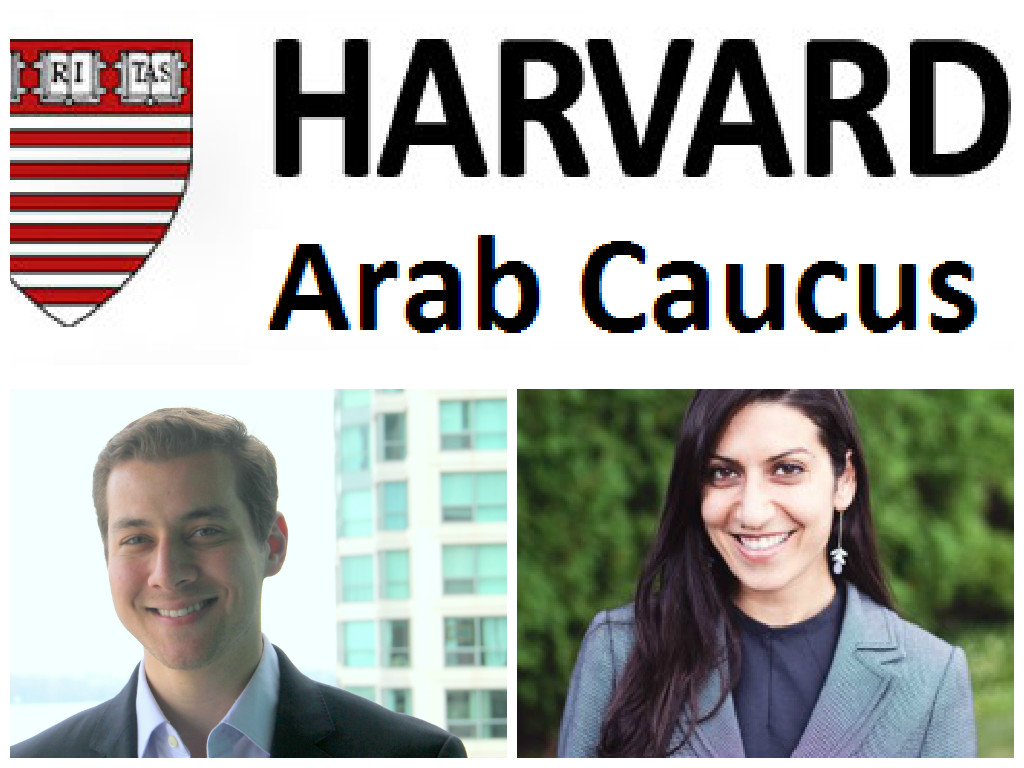By Malik Siraj Akbar, Web Editor, The Citizen
Continuing our series of interviews with the representatives of different student groups here at the Kennedy School, this week we are publishing an interview with the co-chairs of the Arab Caucus, Khaled Kteily and Fayrouz Saad.
Tell us a little about yourselves. What brings you to the Kennedy School?
 Khaled: My name is Khaled Kteily; I am an MPP1 (Master in Public Policy) with a background in management consulting and working with the United Nations. I am a Palestinian-Lebanese who has worked extensively on the issue of Palestinian human rights and am proud of my background as an Arab; being involved with the HKS Arab Caucus was a big part of continuing my work by promoting an Arab voice on campus and making sure my colleagues see the positives of what the Arab world has to offer. Working with my co-president Fayrouz has been an incredibly rewarding experience towards achieving that.
Khaled: My name is Khaled Kteily; I am an MPP1 (Master in Public Policy) with a background in management consulting and working with the United Nations. I am a Palestinian-Lebanese who has worked extensively on the issue of Palestinian human rights and am proud of my background as an Arab; being involved with the HKS Arab Caucus was a big part of continuing my work by promoting an Arab voice on campus and making sure my colleagues see the positives of what the Arab world has to offer. Working with my co-president Fayrouz has been an incredibly rewarding experience towards achieving that.

Tell us more about your organization/ PIC. How many members do you have? What is the purpose of the organization and what do you do to meet these goals?
We have about 150 members (HKS and otherwise) of all backgrounds including the Middle East. The purpose of the Arab Caucus is to educate the Harvard Community on issues facing the MENA region while also providing a space on campus for students to come together to celebrate culture and discuss important pressing political issues. We hope to accomplish this through consistent communication with our members on issues as they arise as well as organized events that bring students together to educate them on Arab culture, politics and current events while also giving them a space to express their concerns and ask questions.
What are some of the interesting events and activities you organized past semester and what do you intend to do next semester?
We have tried to plan a good mix of events. This past semester, we held events including a mixer with Tufts, a human rights talk with Dr. Mads Gilbert, and a small-group session with Egyptian comedian Bassem Youssef. This coming semester we hope to hold a large networking event for Arab and non-Arab students, and to host an Arab comedy show. Stay tuned for details!
How can current and future students join your organization? How do you think your organization adds value to students’ HKS experience?
All students are welcome to join! Anyone with an interest in the Middle East – not necessarily just Arabs – is welcome to join. It’s an incredible opportunity to meet peers with similar interests and begin building a network in the region.

We have a passionate and committed group of students helping with events, as well as an open-minded environment at HKS that encourages critical thinking and learning more about the different regions of the world. While we are fortunate to be on the Harvard Campus and be working with intelligent and passionate individuals from all backgrounds, busy schedules and competing events make it difficult to keep students engaged. Additionally, evolving, changing and challenging current events in the Arab World present us with a challenge of where to focus as all issues are important and need attention.
